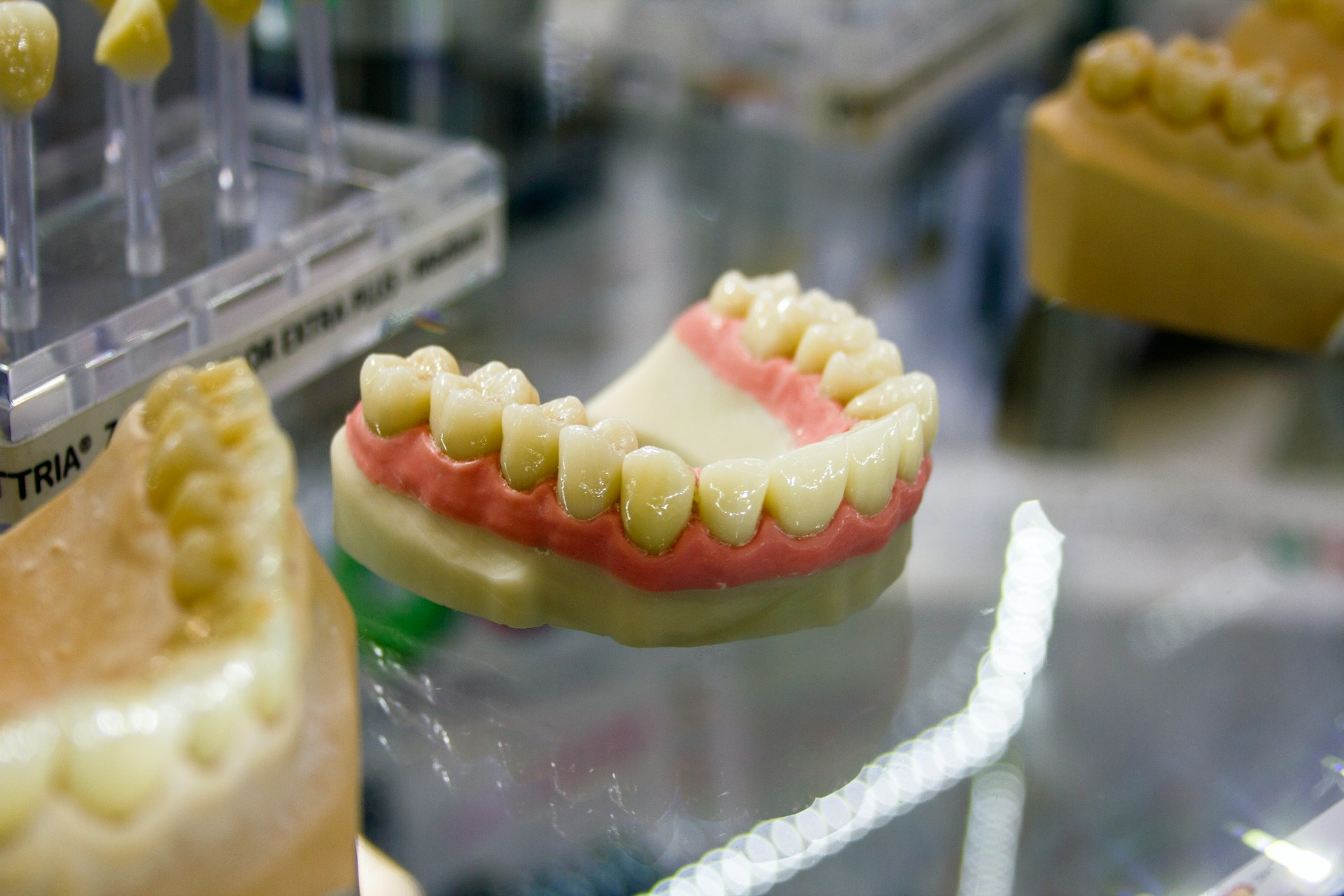In today’s digital-first world, dental practices face a crucial question: Are you using Dental SEO to maximise your online presence? Dental SEO, or search engine optimisation tailored for dental practices, is the process of improving a dental practice’s visibility on search engines like Google. By optimising your website and online content, you can attract more potential patients and drive organic traffic to your practice.
Unlike general SEO, dental SEO focuses specifically on local visibility and patient acquisition. This means targeting potential patients within your geographic area who are actively searching for services you provide. For example, when someone searches for “dentist near me” or “teeth whitening [city],” the goal of dental SEO is to make your practice appear at the top of those search results.
This is true with you are an NHS or Private Clinic, even a hybrid of both.
The benefits are immense. Not only can you increase your visibility, but you can also establish trust and credibility with your audience. In an industry where competition is fierce, failing to implement effective SEO strategies can leave your practice virtually invisible to new patients searching online. With proper optimisation, you can dominate local search rankings, enhance your online reputation, and grow your patient base significantly.
Key Components of Dental SEO

Optimising Your Website for Patients
Your website serves as the digital front door to your practice. To create a strong first impression and encourage patients to stay, it must be user-friendly, mobile-responsive, and visually appealing. A mobile-friendly design is particularly important, as many patients search for dental services using their smartphones. Additionally, fast loading speeds are crucial—a slow website can cause potential patients to leave before they even see what you offer. Ensure your website uses secure connections through HTTPS to build trust and protect user data.
The design and functionality of your website should cater to both new and returning patients. Include clear and prominent call-to-actions (CTAs) such as “Book an Appointment” or “Contact Us Today.” These encourage visitors to take immediate action, turning web traffic into real patients. Your site should also provide valuable information such as details about services, pricing, and insurance options to keep users engaged.
Local SEO for Dentists
Most dental practices serve patients within a specific geographic area, making local SEO critical to success. Start by optimising your Google My Business (GMB) profile. This free tool allows you to add accurate details about your practice, including your address, phone number, business hours, and a link to your website. An optimised GMB profile ensures your practice appears in Google Maps results, increasing visibility to potential patients nearby.
Encourage satisfied patients to leave reviews on your GMB listing. Positive reviews not only improve your rankings but also build trust with potential patients. Additionally, ensure consistency across all online platforms.
Your Name, Address, and Phone Number (NAP) must match exactly on your website, directories, and social media pages. This consistency makes it easier for search engines to verify your business details and improves your local rankings.
Dental-Specific Keywords
Using the right keywords is a cornerstone of any SEO strategy. For dental practices, these might include:
- Short-tail keywords: “dentist near me,” “orthodontist.”
- Long-tail keywords: “affordable teeth cleaning in [City],” “best paediatric dentist near [City].”
Conduct thorough keyword research to identify terms your target audience is searching for. Incorporate these strategically into your website’s headers, meta descriptions, and content to improve rankings. For example, a blog post titled “5 Tips for Whiter Teeth in [City]” not only attracts readers but also boosts your local SEO. Use keywords naturally within your content to avoid penalties for keyword stuffing.
Creating Content That Converts
Blogging for Patient Engagement
Blogging is a powerful way to establish your practice as an authority in oral health. Regularly publishing articles on topics that address common patient concerns can attract new visitors to your site and build trust with your audience. For example, you could write about “What to Expect During a Root Canal” or “The Importance of Regular Dental Check-ups.”
By addressing frequently asked questions, you demonstrate your expertise and reassure potential patients that they are in capable hands. Blogging also allows you to incorporate targeted keywords naturally, improving your site’s SEO performance. Consistent, high-quality blog content can help your practice stand out in a competitive market and drive long-term traffic to your website.
Leveraging Video Marketing
Video content is one of the most engaging forms of digital media. By creating videos that explain dental procedures, showcase patient testimonials, or provide oral hygiene tips, you can connect with your audience on a deeper level. Platforms like YouTube, Instagram, and Facebook are excellent for sharing videos and reaching a broader audience. It’s dental marketing at its finest.
For example, a short video explaining the benefits of Invisalign can help potential patients understand the treatment and encourage them to book a consultation. Videos are not only great for educating patients but also for building trust and personalising your practice’s brand.
FAQs Section on Your Website
Patients value convenience and easy access to information. Adding a dedicated FAQ section to your website can address common concerns such as treatment costs, insurance acceptance, and appointment processes. This not only helps patients but also increases dwell time on your site—a positive ranking factor for SEO. By answering questions clearly and thoroughly, you can enhance the user experience and establish your practice as a reliable source of information.
The Importance of Reviews and Reputation Management

Online reviews play a critical role in attracting new patients. Most people rely on reviews to make decisions about dental care providers. Focus on platforms like Google Reviews, and others to really stand out.
Encourage patients to leave reviews after their appointments by sending follow-up emails or offering small incentives like discounts on future services. Always respond to reviews—both positive and negative—to show your commitment to patient satisfaction.
Advanced SEO Strategies for Dental Practices
Technical SEO for Dental Websites
Technical SEO ensures your website is optimised for search engines behind the scenes. Key aspects include:
- Mobile-first indexing: Your site should be designed to perform seamlessly on mobile devices.
- Site speed optimisation: Slow loading speeds can deter potential patients.
- Structured data: Use schema markup to help search engines understand your site’s content.
Building High-Quality Backlinks
Backlinks from reputable sources signal trustworthiness to search engines. Reach out to local dental associations or community blogs for guest posting opportunities.
Tracking and Measuring SEO Success
Track your SEO efforts using tools like Google Analytics and Google Search Console. Monitor key metrics such as organic traffic, bounce rates, and keyword rankings to refine your strategy.
Common Dental SEO Mistakes to Avoid
- Keyword Stuffing: Overloading your content with keywords can lead to penalties.
- Ignoring Local SEO: Neglecting location-based strategies reduces your visibility in your immediate area.
- Outdated GMB Profiles: Regularly update your Google My Business listing to reflect accurate information.
- Ignoring Reviews: Failing to address negative reviews or engage with positive ones can harm your reputation.
Conclusion: Why Dental SEO Matters
Dental SEO is no longer optional in a competitive market. It’s the gateway to attracting new patients, building trust, and establishing your practice as a leader in your community. By implementing these strategies—from optimising your website to leveraging local SEO—you can create a robust online presence that drives measurable results.
So, are you using Dental SEO effectively? If not, now is the time to start. Take control of your online presence and watch your practice grow!
![What is Dental SEO? In today’s digital-first world, dental practices face a crucial question: Are you using Dental SEO to maximise your online presence? Dental SEO, or search engine optimisation tailored for dental practices, is the process of improving a dental practice’s visibility on search engines like Google. By optimising your website and online content, you can attract more potential patients and drive organic traffic to your practice. Unlike general SEO, dental SEO focuses specifically on local visibility and patient acquisition. This means targeting potential patients within your geographic area who are actively searching for services you provide. For example, when someone searches for “dentist near me” or “teeth whitening [city],” the goal of dental SEO is to make your practice appear at the top of those search results. The benefits are immense. Not only can you increase your visibility, but you can also establish trust and credibility with your audience. In an industry where competition is fierce, failing to implement effective SEO strategies can leave your practice virtually invisible to new patients searching online. With proper optimisation, you can dominate local search rankings, enhance your online reputation, and grow your patient base significantly. Key Components of Dental SEO Optimising Your Website for Patients Your website serves as the digital front door to your practice. To create a strong first impression and encourage patients to stay, it must be user-friendly, mobile-responsive, and visually appealing. A mobile-friendly design is particularly important, as many patients search for dental services using their smartphones. Additionally, fast loading speeds are crucial—a slow website can cause potential patients to leave before they even see what you offer. Ensure your website uses secure connections through HTTPS to build trust and protect user data. The design and functionality of your website should cater to both new and returning patients. Include clear and prominent call-to-actions (CTAs) such as “Book an Appointment” or “Contact Us Today.” These encourage visitors to take immediate action, turning web traffic into real patients. Your site should also provide valuable information such as details about services, pricing, and insurance options to keep users engaged. Local SEO for Dentists Most dental practices serve patients within a specific geographic area, making local SEO critical to success. Start by optimising your Google My Business (GMB) profile. This free tool allows you to add accurate details about your practice, including your address, phone number, business hours, and a link to your website. An optimised GMB profile ensures your practice appears in Google Maps results, increasing visibility to potential patients nearby. Encourage satisfied patients to leave reviews on your GMB listing. Positive reviews not only improve your rankings but also build trust with potential patients. Additionally, ensure consistency across all online platforms. Your Name, Address, and Phone Number (NAP) must match exactly on your website, directories, and social media pages. This consistency makes it easier for search engines to verify your business details and improves your local rankings. Dental-Specific Keywords Using the right keywords is a cornerstone of any SEO strategy. For dental practices, these might include: Short-tail keywords: “dentist near me,” “orthodontist.” Long-tail keywords: “affordable teeth cleaning in [City],” “best paediatric dentist near [City].” Conduct thorough keyword research to identify terms your target audience is searching for. Incorporate these strategically into your website’s headers, meta descriptions, and content to improve rankings. For example, a blog post titled “5 Tips for Whiter Teeth in [City]” not only attracts readers but also boosts your local SEO. Use keywords naturally within your content to avoid penalties for keyword stuffing. Creating Content That Converts Blogging for Patient Engagement Blogging is a powerful way to establish your practice as an authority in oral health. Regularly publishing articles on topics that address common patient concerns can attract new visitors to your site and build trust with your audience. For example, you could write about “What to Expect During a Root Canal” or “The Importance of Regular Dental Check-ups.” By addressing frequently asked questions, you demonstrate your expertise and reassure potential patients that they are in capable hands. Blogging also allows you to incorporate targeted keywords naturally, improving your site’s SEO performance. Consistent, high-quality blog content can help your practice stand out in a competitive market and drive long-term traffic to your website. Leveraging Video Marketing Video content is one of the most engaging forms of digital media. By creating videos that explain dental procedures, showcase patient testimonials, or provide oral hygiene tips, you can connect with your audience on a deeper level. Platforms like YouTube, Instagram, and Facebook are excellent for sharing videos and reaching a broader audience. For example, a short video explaining the benefits of Invisalign can help potential patients understand the treatment and encourage them to book a consultation. Videos are not only great for educating patients but also for building trust and personalising your practice’s brand. FAQs Section on Your Website Patients value convenience and easy access to information. Adding a dedicated FAQ section to your website can address common concerns such as treatment costs, insurance acceptance, and appointment processes. This not only helps patients but also increases dwell time on your site—a positive ranking factor for SEO. By answering questions clearly and thoroughly, you can enhance the user experience and establish your practice as a reliable source of information. The Importance of Reviews and Reputation Management Online reviews play a critical role in attracting new patients. Most people rely on reviews to make decisions about dental care providers. Focus on platforms like Google Reviews, Yelp, and Healthgrades to build your reputation. Encourage patients to leave reviews after their appointments by sending follow-up emails or offering small incentives like discounts on future services. Always respond to reviews—both positive and negative—to show your commitment to patient satisfaction. Advanced SEO Strategies for Dental Practices Technical SEO for Dental Websites Technical SEO ensures your website is optimised for search engines behind the scenes. Key aspects include: Mobile-first indexing: Your site should be designed to perform seamlessly on mobile devices. Site speed optimisation: Slow loading speeds can deter potential patients. Structured data: Use schema markup to help search engines understand your site’s content. Building High-Quality Backlinks Backlinks from reputable sources signal trustworthiness to search engines. Reach out to local dental associations or community blogs for guest posting opportunities. Tracking and Measuring SEO Success Track your SEO efforts using tools like Google Analytics and Google Search Console. Monitor key metrics such as organic traffic, bounce rates, and keyword rankings to refine your strategy. Common Dental SEO Mistakes to Avoid Keyword Stuffing: Overloading your content with keywords can lead to penalties. Ignoring Local SEO: Neglecting location-based strategies reduces your visibility in your immediate area. Outdated GMB Profiles: Regularly update your Google My Business listing to reflect accurate information. Ignoring Reviews: Failing to address negative reviews or engage with positive ones can harm your reputation. Conclusion: Why Dental SEO Matters Dental SEO is no longer optional in a competitive market. It’s the gateway to attracting new patients, building trust, and establishing your practice as a leader in your community. By implementing these strategies—from optimising your website to leveraging local SEO—you can create a robust online presence that drives measurable results. So, are you using Dental SEO effectively? If not, now is the time to start. Take control of your online presence and watch your practice grow!](https://cosmetictreatment.co.uk/wp-content/uploads/2025/01/DALL·E-2025-01-06-16.27.26-A-visually-appealing-image-of-a-modern-dental-office-with-a-dentists-chair-and-digital-tools-in-view-symbolising-advanced-technology-and-online-pres.webp)



